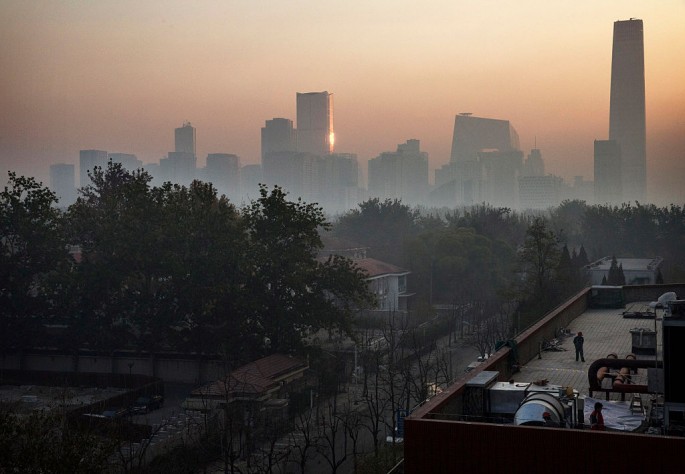Ozone gas surpassed the notorious PM2.5 as the biggest air pollutant in Beijing, bringing to light whether or not China’s efforts to curb air pollution are really effective.
Citing the Beijing Environmental Monitoring Center (BEMC), China Daily reported how the ozone gas became the prime air pollution problem in Beijing and will remain as such for a couple of days.
According to the outlet, the warm weather is to blame for the sudden increase in ozone, while cloudy weather promotes the presence of PM2.5 particles.
"Ozone at ground level is generated mainly through complicated photochemical reactions," BEMC researcher Chen Nianliang explained. "It is closely related to other air pollutants, such as volatile organic compounds and nitrogen oxides. Levels of ozone typically rise at midday due to strong sunshine and higher temperatures."
Effects of Ozone
While the sunshine may drive away the notorious PM2.5 particles, it is replaced by the ozone gas that is known to cause respiratory symptoms, decrement on lung function, inflammation of the airways, and even death.
According to the U.S. Environmental Protection Agency (EPA), breathing ozone gas at ground level can lead to coughing, throat irritation, pain, burning, or discomfort in the chest when taking a deep breath, chest tightness, wheezing, or shortness of breath.
"The effects are reversible, with improvement and recovery to baseline varying from a few hours to 48 hours after an elevated ozone exposure," the American agency noted.
The EPA also believes that inhalation of ozone gas actually increases mortality, especially during the warm season, based on an epidemiologic research.
"Recent epidemiologic research has clearly demonstrated that both short-term and longer-term exposures to low concentrations of particle pollution, a common air pollutant, are associated with increased mortality," the EPA explained.
China's Efforts to Curb Air Pollution
Air pollution is one of the most difficult problems to solve in cities in China, which is why even the international community became concerned at how the government is handling it.
On Saturday, the state-run Xinhua News Agency published a report revealing how the United Nations' environment-focused agency commended China's efforts to curb air pollution.
"China has developed measures aimed at reducing the problem," U.N. Environment Programme (UNEP) Coordinator for Environment and Health Fanny Demassieux told Xinhua.
According to Demassieux, the solution to air pollution should involve all sectors that work as a team.
"The delegates, mainly policymakers, will have to agree to allocate money toward eradicating communicable diseases that kill and maim majority of poor people," she explained, adding that Chinese citizens should do their part in motivating their policymakers to allocate funds and develop policy that will improve their lives.



























